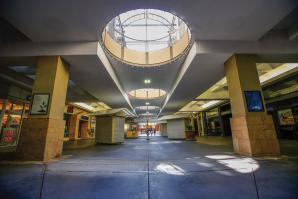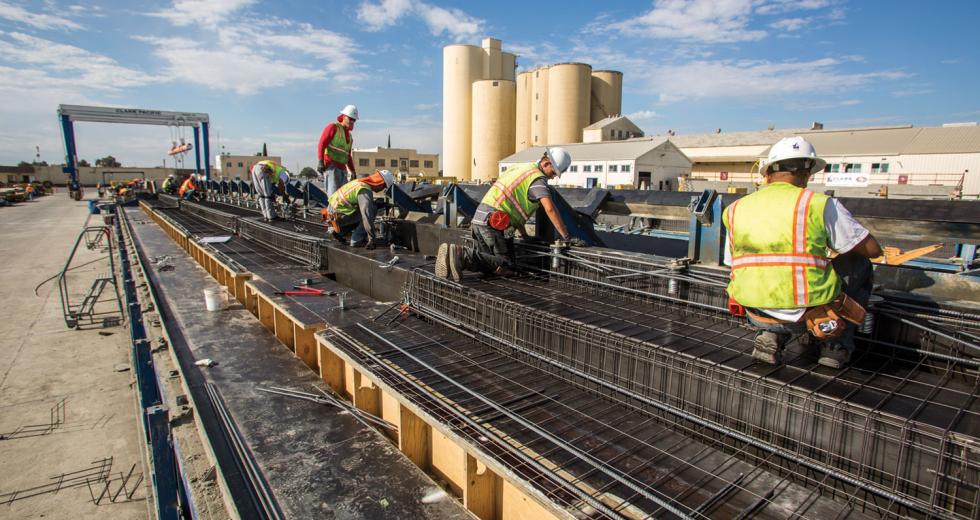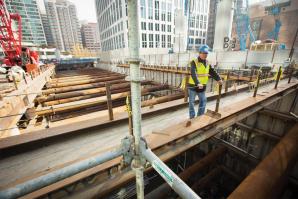The day Clark Pacific won the bid to provide the concrete components for the 49ers’ new football stadium in Santa Clara was a day for much celebration. It was a $20 million award. It meant new jobs. It meant an economic boost for the region. Plus, it was a cool project to work on. Most of all, it meant the West Sacramento company had employed the right strategy to weather the recession and the catastrophic toll it had taken on the building industry.
In other words, the win wasn’t really a surprise.
“From the moment we saw this bid, we knew it was perfect for our company,” says Don Clark, Clark Pacific’s co-owner and president of business development. “A big part of our recession strategy was to hang on to our engineering strength for projects just like this. This was not a contract based on price alone; our ability to get it done was a big part of why we won.”
Logistically, the project is a monster that calls for 20,000 tons of precast concrete (building blocks, basically) to be created and shipped to the construction site for assembly. In the case of a stadium project like this one, those building blocks can weigh upward of 35,000 pounds, must meet strength and density requirements and must have uniform color. They also must arrive at the construction site at specific times — and in a specific order — so the stadium will be completed in time for the 2013-2014 football season.
To win the bid, Clark Pacific promised it could do the job in about half the time of a normal stadium project. Even the initial engineering and construction of the concrete forms used to create the stairs, landing, walls and other components had to be done in four months instead of the usual eight. It helps that most of the raw materials are sourced locally — the Cache Creek granite quarry and Granite Construction will provide the bulk of it.
Fortunately, the Yolo County Board of Supervisors recently
approved Clark Pacific’s facility expansion, growing it from 18
to 26 acres and making it the newest and largest precast facility
in California. That was certainly appealing to the stadium
builders, who required the winning bidder to store the finished
components until the construction site is ready for the first
deliveries in October.
“There are a lot of 49er fans here who are very proud to be working on this project. I can’t tell you how many people have asked if they could write their initials in the concrete. Of course, we have a few Raiders fans who’d like to write some things, too.”
Don Clark, co-owner and president of business development, Clark Pacific
It was also an attractive development project for the county.
“They wanted to expand on industrial-zoned land that had been the site of the former Spreckels Sugar factory,” says Yolo County Supervisor Mike McGowan. “That was consistent with our philosophy to preserve agricultural land in the community, re-using land for the best use and stimulating economic development. Add to that mix the Clark family, which epitomizes integrity and professionalism, and for me that expansion proposal was a no-brainer.”
The expansion also enabled Clark to move forward with a 24-hour work schedule, which was great, except the company needed about 100 new skilled employees to do the work.
“As soon as we got word that Clark had won the contract, we made sure they knew we were here to help with their employee needs,” says Jason Billington, an instructor with Northern California Construction Training in West Sacramento, which primes about 300 students annually. “We shifted gears in our training program to ensure we had workers skilled in modern concrete work. I think, at one point, Clark hired almost an entire graduating class.”
When deliveries start this month, Clark says they’ll need about 40 drivers to make the 90-mile, three-hour journeys to get the components to Santa Clara. (As of press time, the company was exploring bids with local trucking companies but would not disclose details.) Logistically, the transport is fairly straightforward. A few conversations with Caltrans, a fleet of oversized flatbed trucks and a couple of cranes will do the job. Nonetheless, travelers sharing the road likely will be impressed. Each piece is between 20 and 40 feet long, and each must be transported individually. Clark estimates it will take more than 1,500 trips to get everything to the construction site.
For the time being, however, all the employees at Clark are enjoying the coolness factor that comes with knowing they’re building something sentimental to Northern Californians.
“There are a lot of 49er fans here who are very proud to be working on this project. I can’t tell you how many people have asked if they could write their initials in the concrete,” Clark says. “Of course, we have a few Raiders fans who’d like to write some things, too.”
Regardless of who they root for, the employees are going to be busy well beyond the stadium’s completion. The company is providing precast concrete for the new Stanford Hospital, the Lucile Packard Children’s Hospital, the new L.A. Live Marriott and the new San Bernardino County Courthouse. In August, Clark also announced it would purchase the California assets of Hanson Structural Precast, which includes an 80-acre, industrial-zoned property in Adelanto, Calif., and existing plant operations in Irwindale, Calif., both of which will expand the company’s reach and offerings in Southern California and Nevada.
Fulfilling the Contract
40 Million Pounds
of precast concrete will be provided to the new 49er stadium in
Santa Clara by Clark Pacific.
$20 Million
Approximate value of the contract Clark Pacific received to build
and deliver the materials.
35,000 Pounds
The weight of some of the stadium’s heaviest individual concrete
components.
10,000
steps and landings will be produced.
2,000
precast components (risers, steps, walls, etc.) will be
manufactured.
1,500
The number of truck trips needed to deliver the materials from
Clark Pacific’s facilities to Santa Clara between October 2012
and January 2013.
580 Stories
The height of all the stadium’s steps and landings if stacked on
top of each other.
100
new jobs could be created to complete the contract.
Clark Pacific
A history of industry leadership
1963 Clark Pacific is originally founded with 15 employees in West Sacramento as Tecon Pacific.
1966 Jim Clark is appointed general manager.
Late 1960s Tecon Pacific develops some of the region’s first pigment-colored precast concrete mix designs and begins specializing in the forming, handling and connection techniques for mass production and installation of precast panels.
1973 A new plant opens in Irwindale after a partnership is forged with construction company Forest City Dillon Inc.
1979 Tecon Pacific introduces its first thin-shell, precast panel at one-half the weight of standard precast panels.
1980 The company lands its first sports stadium contract, for the San Jose State Spartans
1981 Tecon introduces glass-fiber reinforced panels and helps write their industry quality control manuals and manufacturing procedures, now in use nationwide.
1982 Company introduces natural, stone-clad precast panels, permitting the mixture of natural stone and complimentary, colored, precast concrete designs. In this same year, the company also lands its first prison contract for Vacaville State Prison, enabling the opening of a new precast plant.
1984 Another new plant opens in Fontana, Calif.
1986 Company introduces natural stone on truss frame panel system, suitable for lightweight and economical high-rise structure designs in areas of high seismic activity.
1987 Tecon introduces Clark Composite Architectural Precast Panels, enabling the fabrication of larger, thin-shell panels, thereby facilitating quicker fabrication and construction with a lower cost per square foot.
1988 Company enters the Oregon market to build the Pioneer Place Retail Shopping Area and launches Pacific Embedded Products to fabricate all the metal required for the company’s concrete products.
1995 Tecon Pacific changes its name to Clark Pacific.
1997 Clark Pacific introduces fast track modular design/build building systems, which integrate the building’s structure and exterior cladding system and gets its first use at the Aerojet facility in Rancho Cordova.
2000 Company tops 400 employees.
2003 Clark Pacific introduces “all-in-one” solutions, giving architects the flexibility to build architectural and structural functionality into single elements and enabling new efficiencies in design.
2008 Clark Pacific opens its third plant, in Woodland.
2012 Clark Pacific outbids two other competitors to win the 49er Stadium contract in Santa Clara.
Did you know?
West Sacramento-based ASC Steel Deck is supplying the new 49ers stadium in Santa Clara with 80 truckloads totaling more than 1.4 million square feet of structural roof and floor deck. The material is being provided to the stadium over a nine-month period that started in July.
Recommended For You

Renaissance on Schedule
The new downtown arena is on track for a 2016 opening
Already embraced by business and city leaders as a catalyst that will ultimately launch a regional renaissance, Sacramento’s long sought and hotly debated entertainment and sports complex is finally taking shape.




